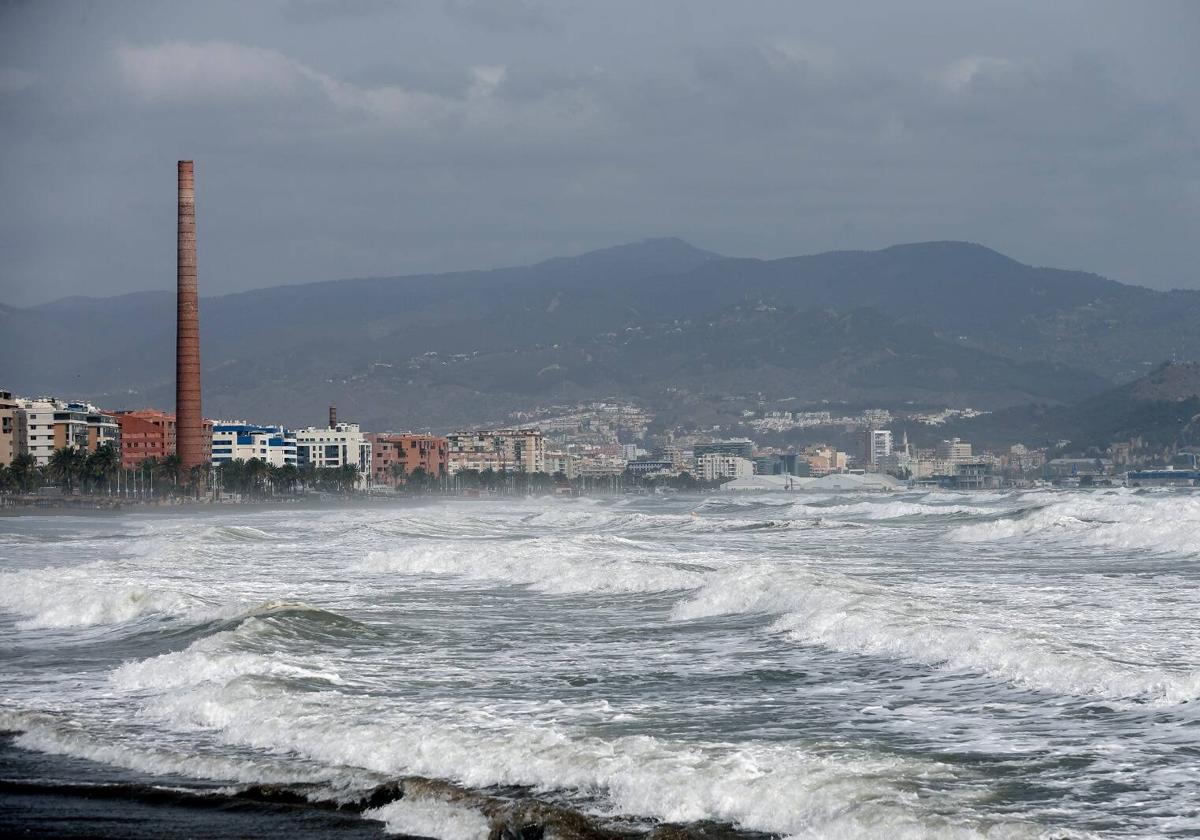

Sections
Highlight

A big new storm arrives this Saturday (4 November) to the Iberian Peninsula. Christened Domingos, it will have similar characteristics to its predecessor, Ciarán; in other words, heavy rain, strong winds and associated sea storms in a large part of the country, according to Spain's state weather agency (Aemet)
Well, the long-awaited rains will not arrive, but strong winds will. Aemet has activated a yellow warning for coastal phenomena for this Saturday in the province, between 4pm and midnight. Westerly winds are expected with intervals of 50 to 60 kilometres per hour (force 7) and they will affect the entire Malaga coastline. Waves of 2 to 3 metres are also expected, especially along the Axarquia coastline.

Although the skies will be overcast, no rain is expected and temperatures will remain between 15C and 24 degrees maximum.
On Sunday there are currently no active weather alerts in Malaga and skies will be clearer. In the rest of Andalucía, cloudy skies are expected, with occasional rainfall extending from west to east, more intense and frequent in the evening, which will not reach the far east and are unlikely on the Mediterranean slope.
Storm Domingos will put the Asturias on red alert (extreme risk) due to highg waves and at significant risk (amber) due to wind; the Balearic Islands at risk due to waves and wind; Cantabria at significant risk due to wind and waves; the Community of Madrid at risk due to wind; the region of Murcia at risk due to wind and waves; Navarre at risk due to wind; and La Rioja at significant risk due to wind.
In Castilla y León, Ávila, Salamanca, Segovia, Soria and Valladolid will be under a yellow warning for wind, while Burgos will be under an amber alert for wind, León under an amber warning for wind and yellow for rain, Palencia under an amber warning for wind and Zamora under an amber warning for wind and yellow for rain.
Likewise, the Catalan provinces of Barcelona, Gerona and Tarragona will be at risk from coastal phenomena; in Extremadura, the province of Cáceres will be at risk from wind; and, in Galicia, La Coruña and Luego will be at extreme risk from coastal phenomena, at significant risk from wind and at risk from rain, Orense will be at significant risk from wind and at risk from rain and Pontevedra will be at extreme risk from waves and at significant risk from wind and rain.
Finally, in the Basque Country, the province of Álava will be under a yellow warning for rain and the provinces of Guipúzcoa and Vizcaya will be under an amber warning for waves; and, in the Valencia region, Alicante will be under a yellow warning for waves and Castellón and Valencia will be under a yellow warning for wind and waves.
This Saturday, snow levels in the Pyrenees will be at 1,400/1,600 metres, with a tendency to rise, and then fall again towards the end of the day to 1,600/1,800 metres, with the possibility of accumulating more than 5 centimetres. With a low probability of snow, in the Cantabrian and northern Iberian Mountains, the altitudes will decrease to 1,400/1,800 metres.
In the Canary Islands, cloudy intervals are expected in the north, without ruling out isolated light rainfall in the mountainous parts of the islands.
Temperatures will increase practically across the board, reaching notable increases in the eastern Cantabrian Sea, except in the southeast of the Iberian Peninsula and the Canary Islands, where they will tend to fall slightly. Frosts are expected in the Pyrenees.
Intense westerly and southwesterly winds will continue to blow over the Spanish mainland and the Balearic Islands; and strong intervals with very strong gusts are expected in large areas of the northwest quarter, the centre, the interior of the eastern third and the coasts, as well as on the islands.
Winds will be particularly strong in the north of Galicia and the Cantabrian Sea, reaching very strong levels, while in the Canary Islands a moderate northerly wind will blow.
Publicidad
Publicidad
Publicidad
Publicidad
Esta funcionalidad es exclusiva para registrados.
Reporta un error en esta noticia

Debido a un error no hemos podido dar de alta tu suscripción.
Por favor, ponte en contacto con Atención al Cliente.

¡Bienvenido a SURINENGLISH!

Tu suscripción con Google se ha realizado correctamente, pero ya tenías otra suscripción activa en SURINENGLISH.
Déjanos tus datos y nos pondremos en contacto contigo para analizar tu caso

¡Tu suscripción con Google se ha realizado correctamente!
La compra se ha asociado al siguiente email
Comentar es una ventaja exclusiva para registrados
¿Ya eres registrado?
Inicia sesiónNecesitas ser suscriptor para poder votar.